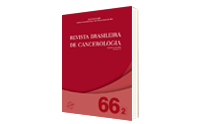Prevalence of Disability and Clinical Associations in Breast Cancer Women Survivors: a Pilot Study
DOI:
https://doi.org/10.32635/2176-9745.RBC.2020v66n2.843Keywords:
Breast Neoplasms, Cancer Survivors, Cross-Sectional Studies, International Classification of Functioning, Disability and Health, Impact ProfileAbstract
Introduction: The treatment of breast cancer improves survival and reduces mortality, but brings functional limitations and side effects that compromise survival. Objective: To evaluate the prevalence of disability and its association with physical capacity, sleep, fatigue and quality of life in women surviving breast cancer. Method: Pilo study involving 32 women at least one year after clinical treatment. The study data were obtained through questionnaires and a six-minute walk test. Results: The prevalence of disability in the sample was >90%. The World Health Organization Disability Assessment Schedule 2.0 (WHODAS 2.0) revealed good internal consistency (α=0.874). Disability correlated strongly and positively with cognition (rs=0.758), mobility (rs=0.709), household/work activity (rs=0.718) and participation (r=0.701) and moderately and negatively with fatigue (r=-0.621) and Functional Assessment of Cancer Therapy-Fatigue (FACT-F) (r=-0.672) and positively with the Disabilities of the Arm and Shoulder (DASH) (r=0.639). Comparing the disability groups, a significant difference was observed with worse scores for DASH (d=1.62), FACT-F (d=1.47), fatigue (d=1.21) and the Pittsburgh Sleep Quality Index (PSQI) (d=0.98). Conclusion: Women who survived breast cancer had some level of disability associated to fatigue, poor sleep quality and quality of life, demonstrating important impacts on the health of these women.









